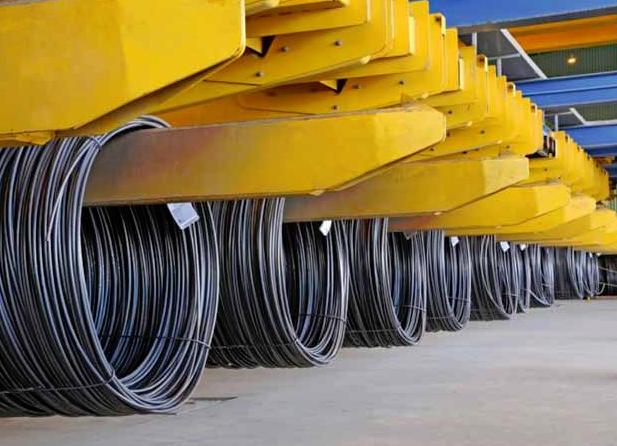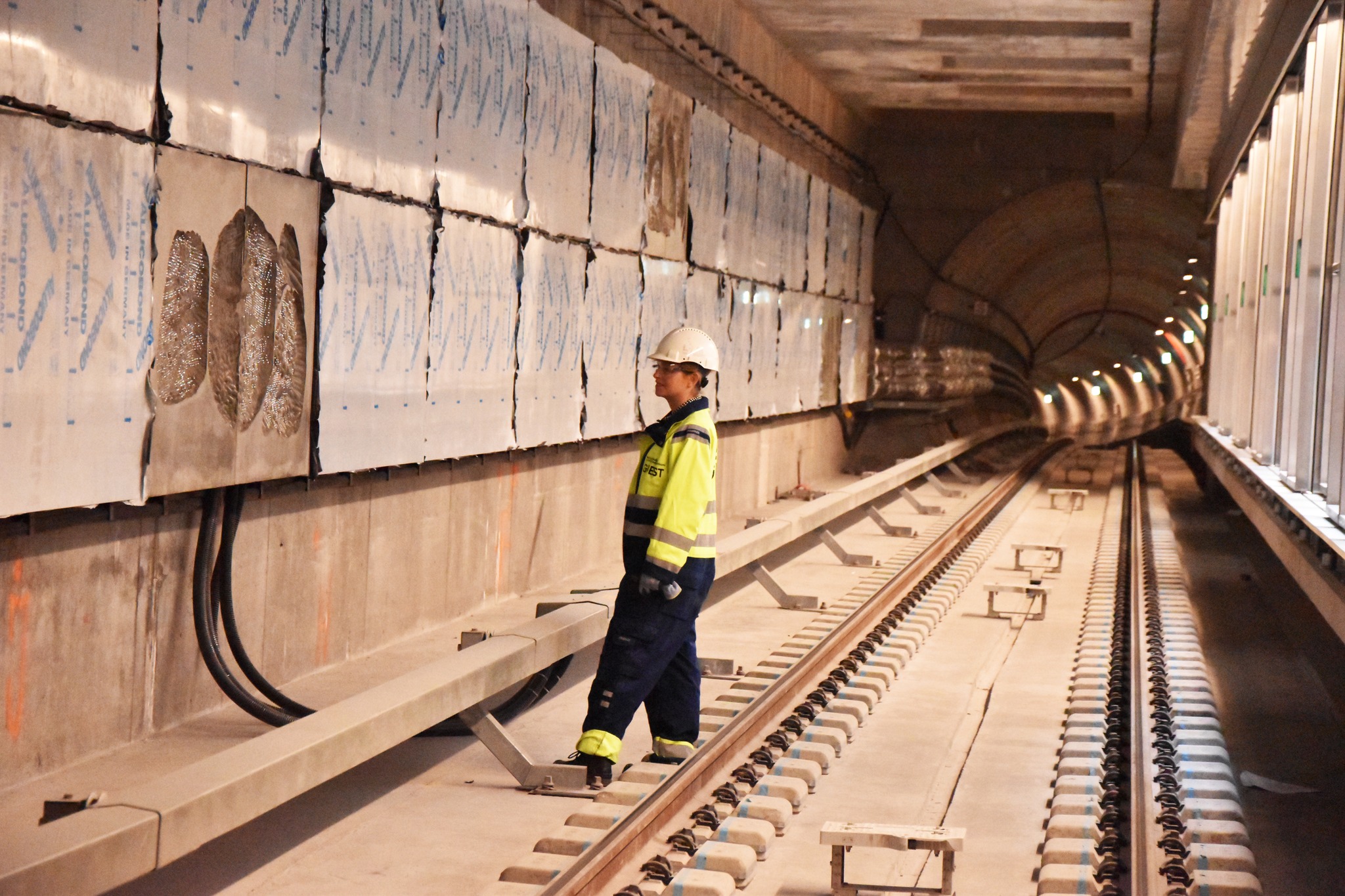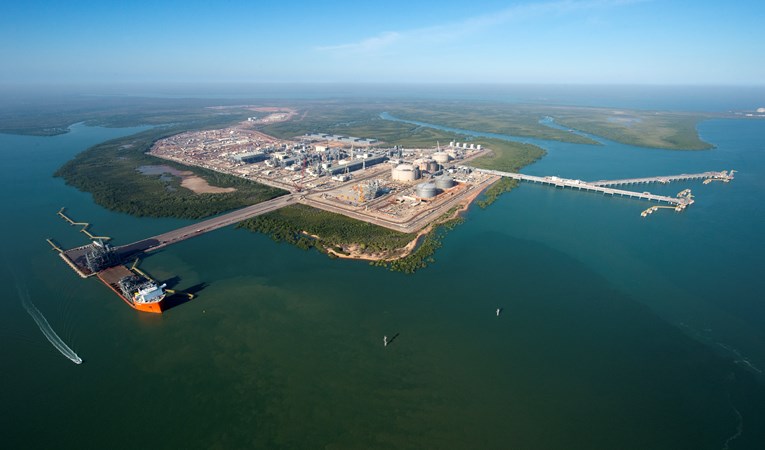
With the global drive towards self-sufficiency picking up pace, Jeff Daniels looks at the efforts being made in Abu Dhabi to become self-reliant in reinforcing steel production.
For years now, Abu Dhabi has been the sand-pit for the world’s biggest names in architecture. There can’t be many other places on earth that can boast the variety and quantity of groundbreaking buildings as this Middle Eastern city. Look at the architectural magazines and it could be that even more wild and wonderful designs are yet to come.
The one thing that they all have in common is their utter dependence on copious quantities of reinforcing steelwork; and more than half of all steel used in their construction comes from Emirates Steel. Some of the landmark projects Emirates Steel has contributed to are the Emirates Palace Hotel in Abu Dhabi, the Corniche Development project, the Dubai Airport Expansion project, the Dubai Marina Towers, Shangri La Hotel in Dubai, the Four Seasons Hotel in Doha and water and power projects in Sharjah and Fujairah.
Formally known as Emirates Iron & Steel Factory (EISF), Emirates Steel is a direct subsidiary of Abu Dhabi Basic Industries Corporation which is, in turn, wholly owned by the General Holding Corporation (GHC). The plant is strategically located at the recently developed Industrial City of Abu Dhabi, 35 kilometres from the heart of Abu Dhabi’s residential and commercial quarters.
Established just 10 years ago in 2001 to satisfy the growing demand for quality steel products for the fast developing construction sector, the complex is the largest steel plant in the UAE, utilising the latest rolling mill technology to produce reinforcing bars (rebar) for the construction industry. In fact, Emirates Steel is the only significant domestic supplier of deformed reinforcing steel bars.
EISF was initially designed to have a rolling mill capacity of 500,000 tons of rebar per year. But when Emirates Steel acquired the assets and business of EISF, the plant quickly ratcheted up to full speed during the boom years of 2005 and 2006, and everything being produced was quickly bought up by contractors within the UAE.
It soon became clear that Emirates Steel would need to increase capacity; and various stages have been both completed and planned. Currently Emirates Steel has a finished product capacity of two million metric tons per annum, which will rise to three million in early 2012 as part of its AED9 billion (US$2.45 billion) phased expansion plan. The many strategic alliances that Emirates Steel has established with leading technology providers, coupled with its state-of-the-art facilities, are expected to maintain its position at the forefront of the industrial sector.
The economic woes starting in 2008 put the brakes on construction activity but there are currently indications that the worst is over. Sales figures released in January registered an increase in finished products production of 17.5 per cent in 2010 compared to the previous year, while sales increased significantly, by 120 per cent. Break the figures down further, and it can be seen that reinforcing steel bar production was up 7.5 per cent and output of wire rod up by a significant 64.5 per cent. All told, billet production increased by 150 per cent in 2010 compared to the last three quarters of 2009.
Further productivity increases achieved by Emirates Steel saw production of direct reduced iron (DRI) up by 640 per cent in 2010, compared to the last quarter of 2009. The plant’s Melt Shop commenced production in March 2009, while the Direct Reduction Plant was commissioned in October 2009.
In order to fulfil its ambition of becoming one of the leading regional companies in the steel making industry, Emirates Steel is working on eliminating bottlenecks in production. Like any other steelmaker, facilities are operated at near or full capacity in order to maximise profits.
As well as the local market, Emirates Steel also has existing trading links with Jordan, Saudi Arabia, Kuwait, Oman, India, Pakistan, China and the Far East. Mubarak Al Khaili, VP of Commercial Strategy, believes that construction projects in the GCC region (Gulf Cooperation Council) will be the key driver supporting the steel industry’s growth in 2011 and 2012, followed by oil & gas, petrochemicals and other infrastructure projects. “Although some stability is returning to the GCC’s construction sector, with signs of a recovery already showing for 2011, we believe that infrastructure projects will accelerate the region’s recovery in the next couple of years,” he says.
In fact, GCC governments are using surplus funds to finance infrastructure projects. Qatar alone has budgeted to spend more than US$50 billion on the World Cup, according to recent media reports.
Housing and the other requirements of a growing population in the GCC, which is expected to reach nearly 125 million by 2050, will also absorb increased capacity in the region’s steel sector. Furthermore, the current upward trend in oil prices will encourage continued development and growth of the region, and boost investments in oil and gas related industries, including petrochemicals.
Sales figures show that Emirates Steel was able to increase its market share to just over 50 per cent in 2010, and has increased its domestic sales volumes by 54 per cent. “This has been achieved through targeted efforts to support our key customers,” says Al Khaili, “and by pursuing sales policies that ensure market stability. Apart from focusing on domestic markets, we have exerted sustained efforts in increasing exports to regional markets, mainly Saudi and Qatar, which further increased our total sales volumes.”
Emirates Steel expects that around 85 per cent of rebar sales are likely to stay locally in 2011, but the company is anticipating exporting more than 50 per cent of its wire rod and coil products. And once commissioning of the steel sections mill takes place by the end of 2011, further export business will be targeted.
In fact, Emirates Steel has ambitious plans to increase total production. So far, phase one has been completed, with further phases over the coming three years expected to take production to around 6.5 million tons per annum.
Last year, Emirates Steel and its ultimate parent company GHC were busy raising credit for Emirates Steel’s forthcoming expansion projects. In July, GHC announced that it had achieved financial close on a US$500 million export credit facility raised by GHC on a corporate basis and insured by SACE, an Italian group that operates in the field of export credit, credit insurance, investment protection, financial guarantees, sureties and factoring. The SACE facility attracted very strong interest from the international banking market, with the extent of proposals received resulting in the SACE facility being around four times oversubscribed.
Working in parallel, Emirates Steel has successfully secured project finance and working capital commitments from both conventional and Islamic institutions for facilities totalling US$1.7 billion.
Another positive occasion for the company was receiving the prestigious Emirates Quality Mark in November last year, only two months after applying for the certification. The Emirates Quality Mark was launched in 2007 to promote excellence among locally manufactured products and will sit proudly alongside Emirates Steel’s Quality System Certification from the UK Certification Authority for Reinforcing Steel. “Together these two awards will reinforce confidence amongst existing customers,” says Al Khaili, “and give us a significant marketing advantage when attracting new business.”
The verification and inspection process leading to the award of this certification included an assessment of the quality systems and a technical assessment of Emirates Steel’s plants and the procedures and systems used in controlling production and internal quality control. In addition, the plants were visited and inspected and product samples analysed in specialised laboratories. In order to be eligible, Emirates Steel had to be ISO 9001 certified.
Of course, Emirates Steel has a macro and micro vision. On the one hand, the business is there to enhance the country as a whole; but at the same time, it wants to empower ordinary citizens. This is being done through a programme of ‘Emiratization’ initiatives. As a social responsibility, Emirates Steel looks to recruit UAE nationals throughout the organisation—and fundamental to this aim is education.
Emirates Steel is sponsoring high school graduates to develop a talent management pool to support its Emiratization plans and offering recruitment opportunities, development programmes and scholarships leading to jobs in all areas from accounting to engineering and operations.
Each year, Emirates Steel hires UAE nationals who then undergo an orientation and development programme. Employees are given individual development plans which enable them to monitor their development, fill their career gaps and take advantage of opportunities for progression within Emirates Steel. This ensures that Emirates Steel has the pool of talent it will increasingly require as development plans proceed.



 EmiratesSTEEL_APR_11_emea_BROCH_s.pdf
EmiratesSTEEL_APR_11_emea_BROCH_s.pdf









